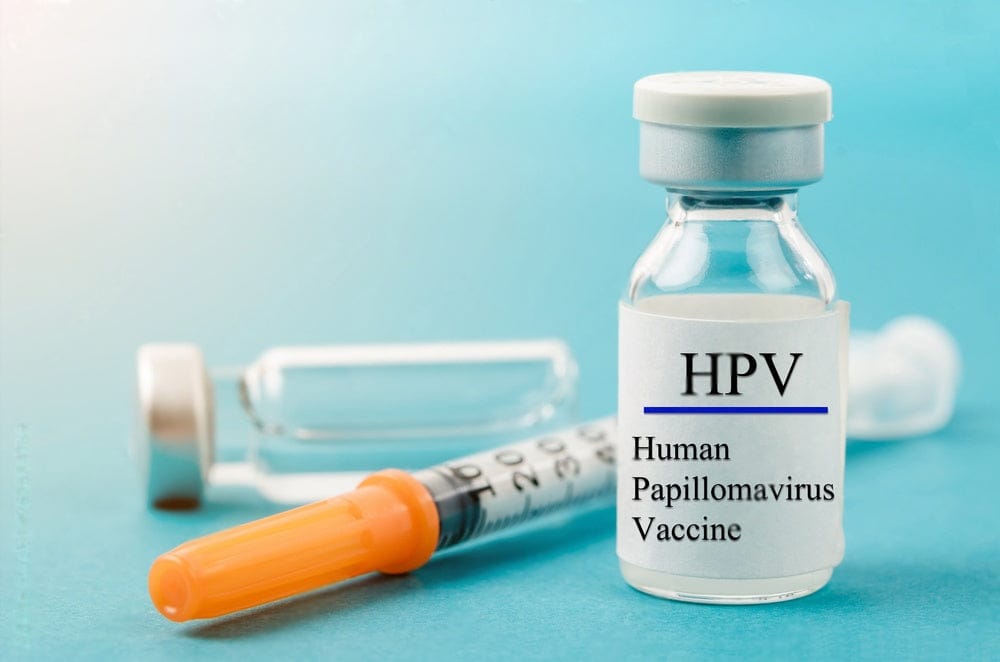Why is there so much focus on a disease with a lower mortality rate?
Breast Cancer vs. Cervical Cancer: You mentioned that breast cancer causes approximately 90,000 deaths annually in Pakistan, while cervical cancer causes around 5,000. It’s important to understand that public health initiatives focus on diseases that are preventable. While breast cancer is a serious issue, a specific vaccine to prevent it does not exist. However, cervical cancer is almost entirely preventable through vaccination against the Human Papillomavirus (HPV). By vaccinating young girls, we can prevent them from ever developing the cancer, which is a significant public health achievement.
Is the vaccine ineffective and will it require frequent booster shots?
HPV Vaccine Coverage:
The HPV vaccine targets the most common high-risk strains of the virus, specifically HPV types 16 and 18, which are responsible for about 70% of all cervical cancer cases globally. The newer vaccines also cover other strains, raising the protection rate even higher. The claim that the vaccine provides only 40% protection is inaccurate and outdated.
Booster Shots:
Current data suggests that the protection offered by the HPV vaccine is long-lasting. Organizations like the World Health Organization (WHO) and the Centers for Disease Control and Prevention (CDC) do not currently recommend or require booster shots for the HPV vaccine.
Why vaccinate at this age, and is it a foreign agenda?
Age of Vaccination:
The recommended age for HPV vaccination (9-14 years) is based on scientific evidence. The vaccine is most effective before a person is exposed to the virus. While you’re right that girls in Pakistan may not be sexually active at this age, the vaccination is a preventative measure. It’s a “head start” that protects them from the virus for their entire lives.
Cultural Context: The virus is not spread exclusively through sex partners. HPV can be transmitted through any kind of skin-to-skin contact in the genital area. It’s a very common virus, and many people can carry it without even knowing. The goal of the vaccination is to ensure protection before any potential exposure, regardless of cultural norms.
Is this a foreign agenda, and are there vested interests at play?
Global Health Funding:
It’s true that organizations like the Bill & Melinda Gates Foundation and Gavi, the Vaccine Alliance, are major funders of global vaccination programs. This funding is part of a global effort to eradicate preventable diseases, especially in developing countries. These organizations work in collaboration with governments and health ministries worldwide. It is not necessarily an agenda of “foreign interests” but a global health initiative to save lives.
Concerns and Controversies: It is a fact that some individuals and groups have raised concerns about the vaccine, including Robert F. Kennedy Jr. (who is not a former US Health Secretary, but an environmental lawyer and vaccine skeptic). However, his claims about the vaccine causing autoimmune diseases are not supported by large-scale scientific studies conducted by reputable health organizations. Major health agencies worldwide, including the WHO, CDC, and European Medicines Agency (EMA), have reviewed these claims and have found no evidence of a link between the vaccine and serious side effects. The legal cases and movements you mentioned are often based on anecdotal evidence rather than scientific consensus.
Was the vaccine tested on people as “guinea pigs”?
India’s Case: The suspension of the HPV vaccination program in India in 2010 was a complex issue. It was not due to the vaccine’s ineffectiveness but rather because of concerns over the ethical conduct of the studies, which involved issues like informed consent. The Indian government did not ban the vaccine outright; they halted the program to ensure proper ethical protocols were followed.
The larger issue of pharmaceutical companies and their influence
Pharmaceutical Ethics: The concerns you’ve raised about the influence of pharmaceutical companies, as detailed in the works of authors like Peter Gøtzsche, are valid and important. The history of drugs like Vioxx highlights the need for transparency and strict regulation. These issues are a matter of global debate and are not specific to the HPV vaccine alone. Regulatory bodies are under constant pressure to improve oversight and prevent such events.
The claim that this is part of a “Dajali” and Malthusian agenda
Population Control Theories: The idea that global health initiatives are part of a population control or Malthusian agenda is a conspiracy theory. Global health organizations and governments are working to improve health outcomes and reduce child mortality, which actually tends to lead to smaller, not larger, family sizes as societies develop and become more prosperous. The goal is to ensure people live healthier, longer lives, not to reduce the population.


